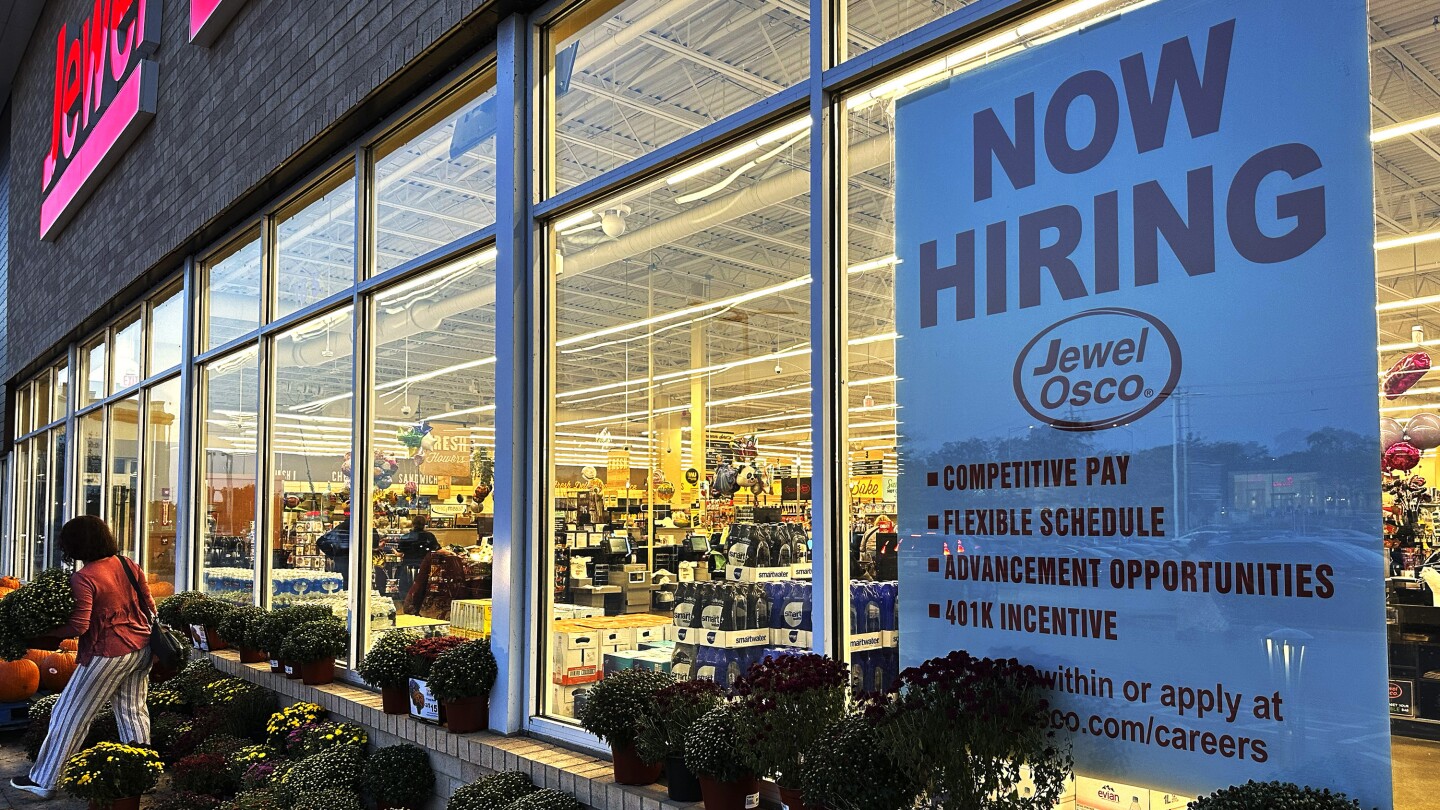NEW YORK (AP) — Most business economists think the U.S. economy could avoid a recession next year, even if the job market ends up weakening under the weight of high interest rates, according to a survey released Monday.
Only 24% of economists surveyed by the National Association for Business Economics said they see a recession in 2024 as more likely than not. The 38 surveyed economists come from such organizations as Morgan Stanley, the University of Arkansas and Nationwide.
Such predictions imply the belief that the Federal Reserve can pull off the delicate balancing act of slowing the economy just enough through high interest rates to get inflation under control, without snuffing out its growth completely.
…
High rates work to slow inflation by making borrowing more expensive and hurting prices for stocks and other investments. The combination typically slows spending and starves inflation of its fuel. So far, the job market has remained remarkably solid despite high interest rates, and the unemployment rate sat at a low 3.9% in October.



I’m baffled that you’re getting downvotes – like… yeah. It’s a no brainer that people primarily care about their own purchasing power, and the last few years have depressed that to a shocking degree. Not one person on Earth looks at their inability to pay for groceries or rent and goes, “Well, thank God the markets are okay!”
As for what can be done? Price controls exist. Subsidies exist. The trouble with the modern world is, the wrong prices are controlled, and the wrong products are subsidized – that stuff is all tipped in favor of pouring money into the gullets of the already wealthy and powerful. And that’s a problem that could, in theory, be fixed if anyone at any level of any government gave the slightest shit about the people they serve.
Raise taxes on the wealthy. Pass rules that a certain minimum must be paid each year regardless of how many credits or deductions they have. Ban zoning. Build as many houses as can be built as fast as possible.
More fundamentally, I think there are a lot of countries that could benefit from taking a good long look at themselves and asking –
Because I think a lot of countries have just straight-up lost the plot. They’ve lost sight of, and fail to articulate, their purpose for existing, and thus squander phenomenal resources on bullshit. They live in myths and fantasies and old cultural scripts that haven’t been relevant or functional since the mid-70s.
I think honest answers to those questions would kind of horrify people – at least, they should horrify American citizens – and it might spark an actual change of direction.
The reason they’re getting down votes is because they’re making claims about purchasing power being depressed despite no data to back it up, with data from many angles showing purchasing power has been largely restored in comparison to before the pandemic, at least in the United States I should be clear. Many western countries had worse inflation than the US and have not had their purchasing power catch up again. Then it goes to “well we don’t trust the numbers we feel differently.” And how can you argue with feelings? It’s just not a productive discussion. Not to mention distracting from many other important issues in our economy. It’s not like there was a perfect economy in 2019. And it still isn’t, even with inflation slowed and wage increases largely compensating.